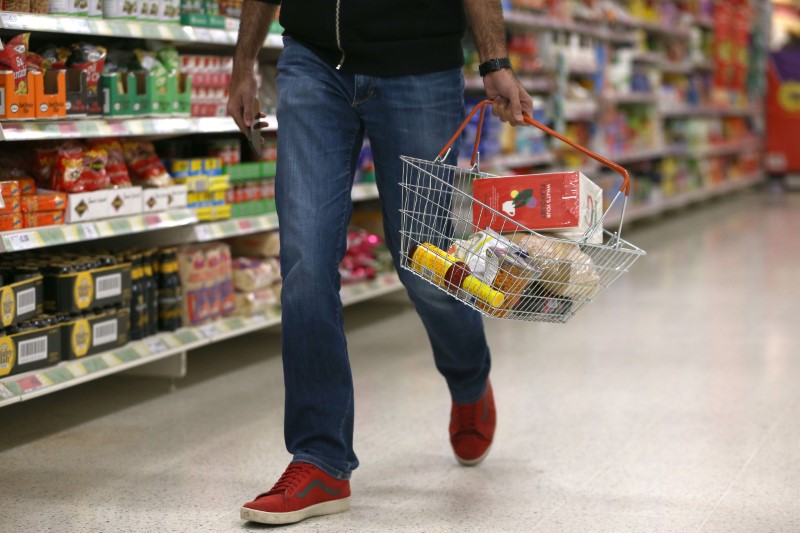By David Milliken
LONDON (Reuters) - British households would have to pay an average of 260 pounds a year more for food, clothing and transport if their government fails to strike a post-Brexit free trade deal with the European Union, a research paper showed on Tuesday.
Britain's government has said it would levy World Trade Organization tariffs on goods imported from the EU if it leaves the bloc without a settlement, a probability which some economists put at roughly 25 percent.
That would mean tariffs of up to 45 percent on some dairy imports while some meat would face a 37 percent levy, researchers from the University of Sussex and the Resolution Foundation, a think tank focused on the low-paid, said.
A typical middle-income household would pay an extra 260 pounds a year, even taking into account a partial shift to cheaper and British-produced goods, they said.
That was equivalent to an extra 0.9 percent in household spending. The poorest 10 percent of households would see their bills rise by 1.0 percent, and the richest 10 percent by 0.8 percent.
"A 'no-deal' scenario ... will increase the cost of essential goods, such as food and clothes, which will impact most adversely on those households who already struggle to get food on the table," Sussex researcher Ilona Serwicka said.
The actual cost rise would vary significantly depending on individual spending patterns and some less well-off households could see their costs go up by more than 500 pounds a year.
British finance minister Philip Hammond said on Monday he did not think there was a rising danger of failure to reach a Brexit deal before Britain leaves the EU in March 2019, despite concern among many investors.
Some Brexit supporters have said Britain would benefit from scrapping all tariffs on goods imports after it leaves the EU, regardless of what the bloc does for UK exports.
Tuesday's report said this could save the average household 130 pounds a year, or 0.5 percent of typical spending.
But the researchers said some industries, such as meat processing, and the rural parts of England where they are concentrated would suffer a big hit in the face of cheap imports and scrapping tariffs immediately would make it harder to get tariff-free access for British exports in future.
